![]() a teacher
a teacher
 JP | EN
JP | EN
 JP | EN
JP | EN
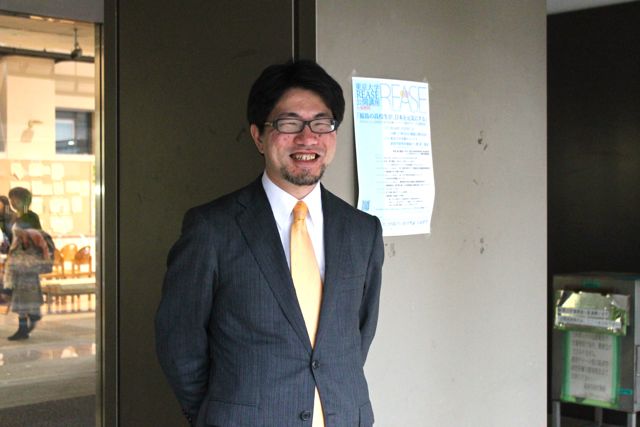 photo: Naoya Maekawa, Director and Executive Secretary of a general incorporated association, Fukushima Manabi-no (Learning) Network
photo: Naoya Maekawa, Director and Executive Secretary of a general incorporated association, Fukushima Manabi-no (Learning) NetworkOn January 16, the day after the National Center Test, I went to school and then to a karaoke box in Sannomiya with some classmates for a break. I had an early night that night because classes for preparation for secondary exams were due to start the following day. At the time, I lived with my parents and my younger brother on the fifth floor of a seven-story apartment building south of JR Tachibana Station.
I heard a rumbling sound and was then hit by a thrusting motion from below, followed by horizontal shaking. I first thought that a large truck had crashed into my apartment building. The tremors opened the doors of a closet in my room, from which a stack of study-aid books fell out. I put my head into the space left by the fallen books to protect myself.
On the day of the earthquake or the day after, one of our customers who lived in an area that had suffered relatively little damage in Amagasaki City, where we also lived, came to pick us up to let us use his bath at his home. On the following days, store owners of the shopping district helped each other, for example, by sharing food.
A week or so later, I got a call from my classroom teacher telling me to come to Shin-Osaka, where he was going to give his students school records that were necessary for college applications. He then said, “You should study all the harder because of this situation.” I didn’t understand what he meant then and there. But I knew our teachers had taken the trouble to find our school records from the messy teacher’s room, and copy and print them in places where electricity was available in order to hand them to us. I can never thank them enough. At our graduation ceremony on a later date, many teachers gave remarks in their own words, expressing the conviction, “Anything that is tangible can be destroyed, but what you have learned and what has been taught to you can never be destroyed.” These words made me realize that what I could do now was study, and they were etched indelibly on my mind.
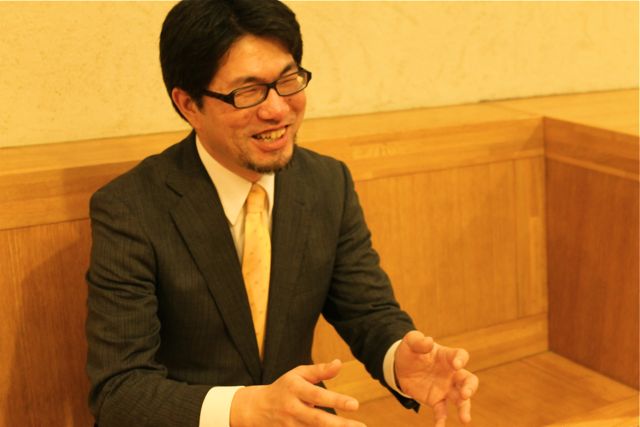 Photo: Mr. Maekawa says he met wonderful teachers and friends during his student days at Nada High School
Photo: Mr. Maekawa says he met wonderful teachers and friends during his student days at Nada High SchoolI learned about the situation of the quake in the Tohoku region and the incidents at the nuclear plants in Fukushima on the news, but I couldn’t collect my thoughts. So, I didn’t go to the affected area immediately. But I was always conscious that I should go there.
I took several days off in August that year and went to quake-hit Kamaishi City, Iwate Prefecture together with some fellow teachers. On seeing the unimaginably terrible situation, I regretted not having gone there sooner. In the case of an earthquake, the destroyed objects remain where they are. However, a tsunami sweeps everything away.
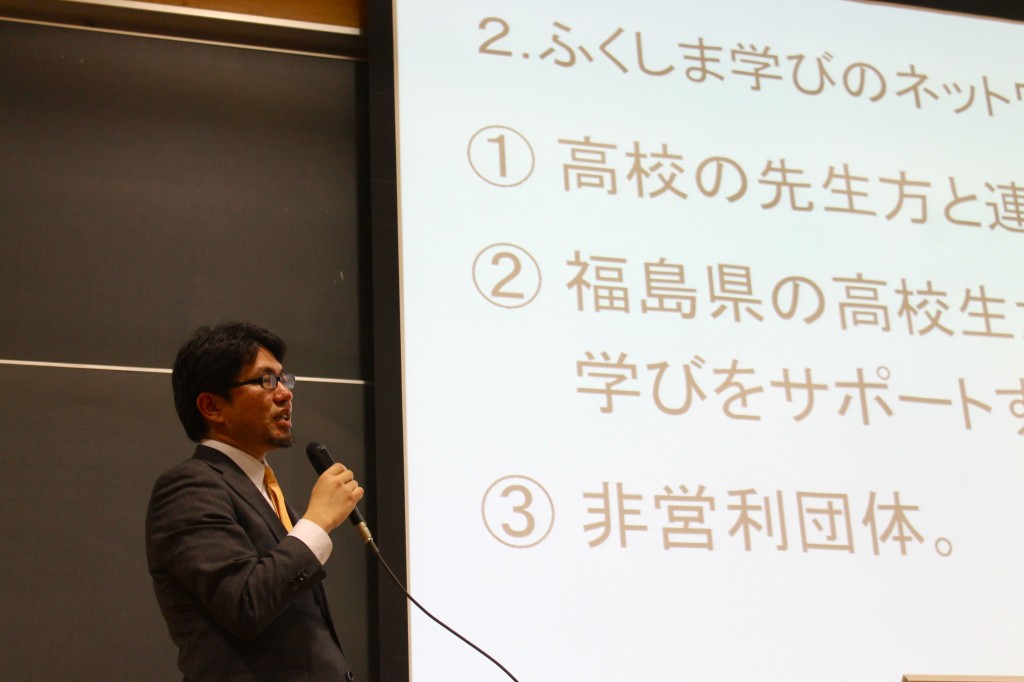 Photo: Mr. Maekawa talking at a public program held on Nov. 29, 2014 as part of the “Research on Economy And Social Exclusion (REASE)” project led by the University of Tokyo. The program provided an opportunity for high school student groups who had achieved excellent results at the “Fukushima High School Students’ Social Activity Contest” to give a presentation of their activities.
Photo: Mr. Maekawa talking at a public program held on Nov. 29, 2014 as part of the “Research on Economy And Social Exclusion (REASE)” project led by the University of Tokyo. The program provided an opportunity for high school student groups who had achieved excellent results at the “Fukushima High School Students’ Social Activity Contest” to give a presentation of their activities.There are many admirable adults coming to Fukushima. One example is Mr. Tsubokura, who I mentioned earlier. He is a long-time alumnus of Nada High School, and a doctor who studied in the Division of Natural Science III and the Faculty of Medicine of the University of Tokyo. Despite such an illustrious background, he frequents Minamisoma City to provide support.
I said to Mr. Tsubokura, “It’s amazing that you take part in support activities despite being so busy,” to which he answered, “I studied with a view to becoming helpful on occasions like this.” which I found really admirable. The important point, I think, is that his behavior can make his students realize that they too are studying for such an occasion.
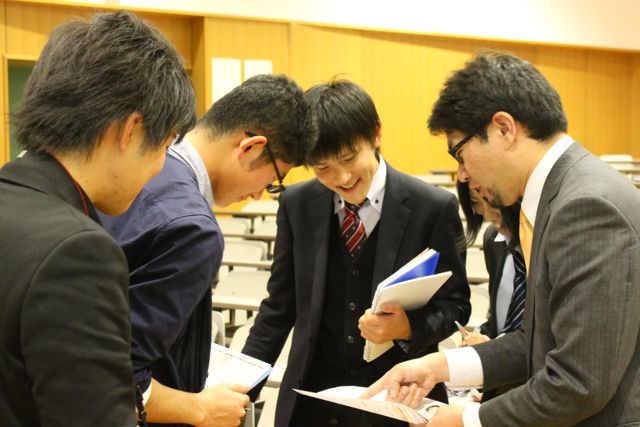 Photo: Mr. Maekawa discussing the arrangements for the public program with members of a high school student group participating in “AIDEMI,” an exchange activity between high school students from China and Japan
Photo: Mr. Maekawa discussing the arrangements for the public program with members of a high school student group participating in “AIDEMI,” an exchange activity between high school students from China and JapanI think the Fukushima nuclear disaster could have made children living in Fukushima lose their faith in adults. However, there are many children who want to become doctors or teachers. That’s because they have been supported by teachers, parents, doctors, local residents, and people who came from other places. Adults who remained on the sidelines outside Fukushima, including myself, owe a debt of gratitude to the adults who have been active in Fukushima.
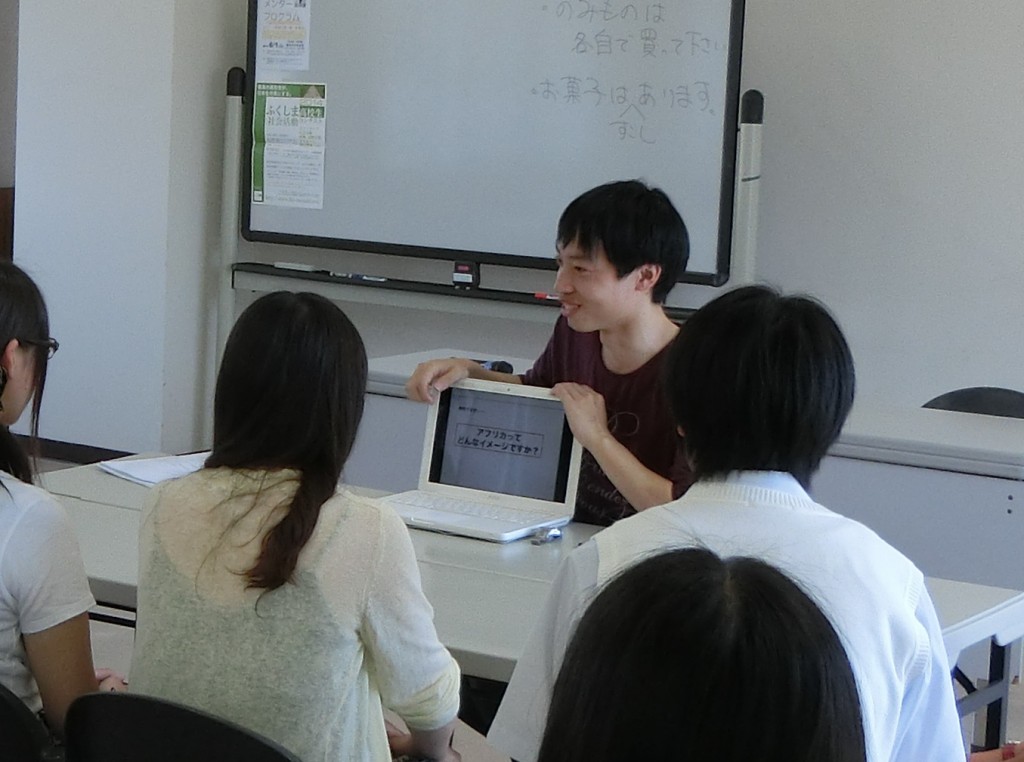 Photo : The mentor program
Photo : The mentor program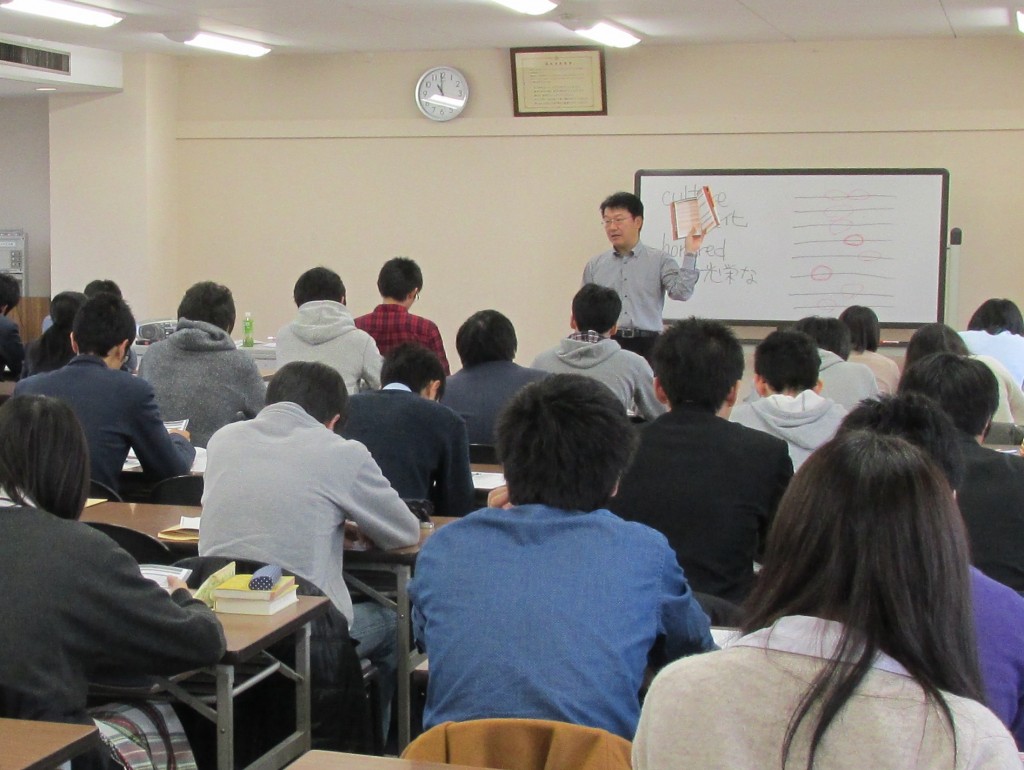 Photo : A free seminar for high school students
Photo : A free seminar for high school studentsThere are projects to be implemented for the creation of employment in Fukushima. However, even if there are jobs, no family would want to move to Fukushima unless a sound educational environment is available.
Another issue I would like to mention is that junior and senior high school students nowadays only study about a half to two-thirds as many hours outside of school as students did 30 years ago. This is partly attributable to Japan’s falling birthrate. They don’t have to compete so fiercely to go to university. Thirty years ago, people believed that attending a good university guaranteed employment at a good company and a life of wealth and ease. Such thinking does not hold water with today’s students.
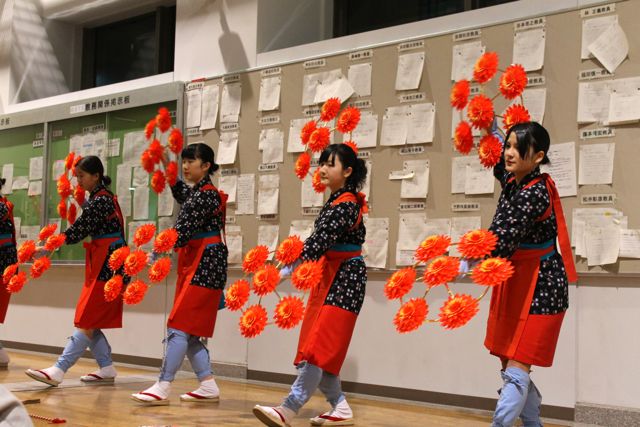 Photo: Dance performance by members of the Saotome Dance Preservation Club, Fukushima Prefectural Aizu Agricultural and Forestry High School
Photo: Dance performance by members of the Saotome Dance Preservation Club, Fukushima Prefectural Aizu Agricultural and Forestry High School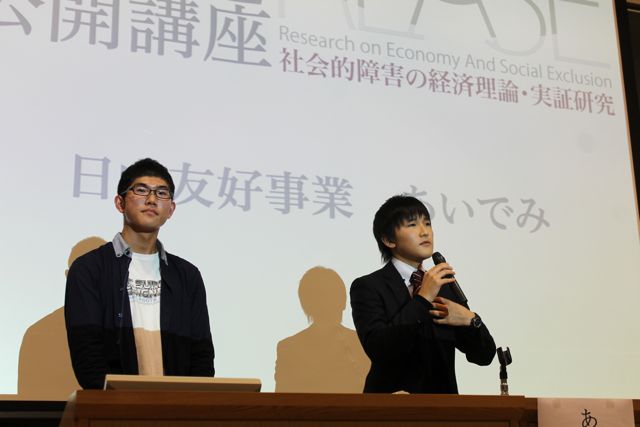 Photo: A presentation about “AIDEMI,” exchange activity between high school students of China and Japan
Photo: A presentation about “AIDEMI,” exchange activity between high school students of China and JapanGo back to the starting point and rethink why we study. It’s to make people happy. Children in Fukushima understand that they are supported by many people and want to become providers of support in the future. If you want to give assistance to someone, you must acquire the ability to do so. This logic of study needs to be applied throughout Japan, and I would like to make Fukushima the first successful case.
It is true that there are still a number of issues to be solved in Fukushima. However, many high school students in Fukushima show a constructive attitude, thinking people can learn and grow from problems. I think, if Fukushima raises its profile as a prefecture that encourages independent study, kids who grow up in Fukushima will be proud of their prefecture and more and more people will want to live in Fukushima.
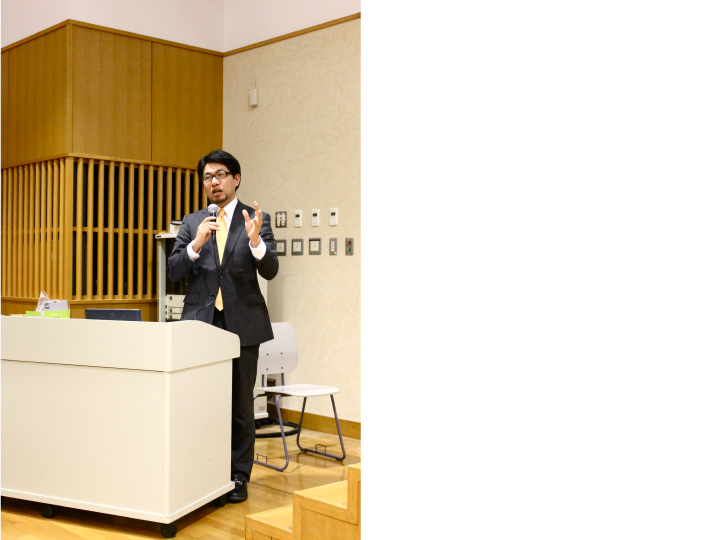
Naoya Maekawa
Naoya Maekawa, Director and Executive Secretary of a general incorporated association, Fukushima Manabi-no (Learning) Network, was born in Hyogo Prefecture in 1977. When the Great Hanshin-Awaji Earthquake struck in 1995, he, then a high school senior in the middle of his college entrance examination period, was at home. After graduating from the University of Tokyo, Mr. Maekawa worked in the education industry. He then studied gender and sexuality at a graduate school of Kyoto University and wrote several books. After that, he worked as a part-time teacher and later a full-time teacher at his alma mater, Nada Junior and Senior High School (Nada High School). Since he left teaching in 2014, Mr. Maekawa has been working as a project researcher at the University of Tokyo’s Graduate School of Economics and as Director and Executive Secretary of Fukushima Manabi-no Network.